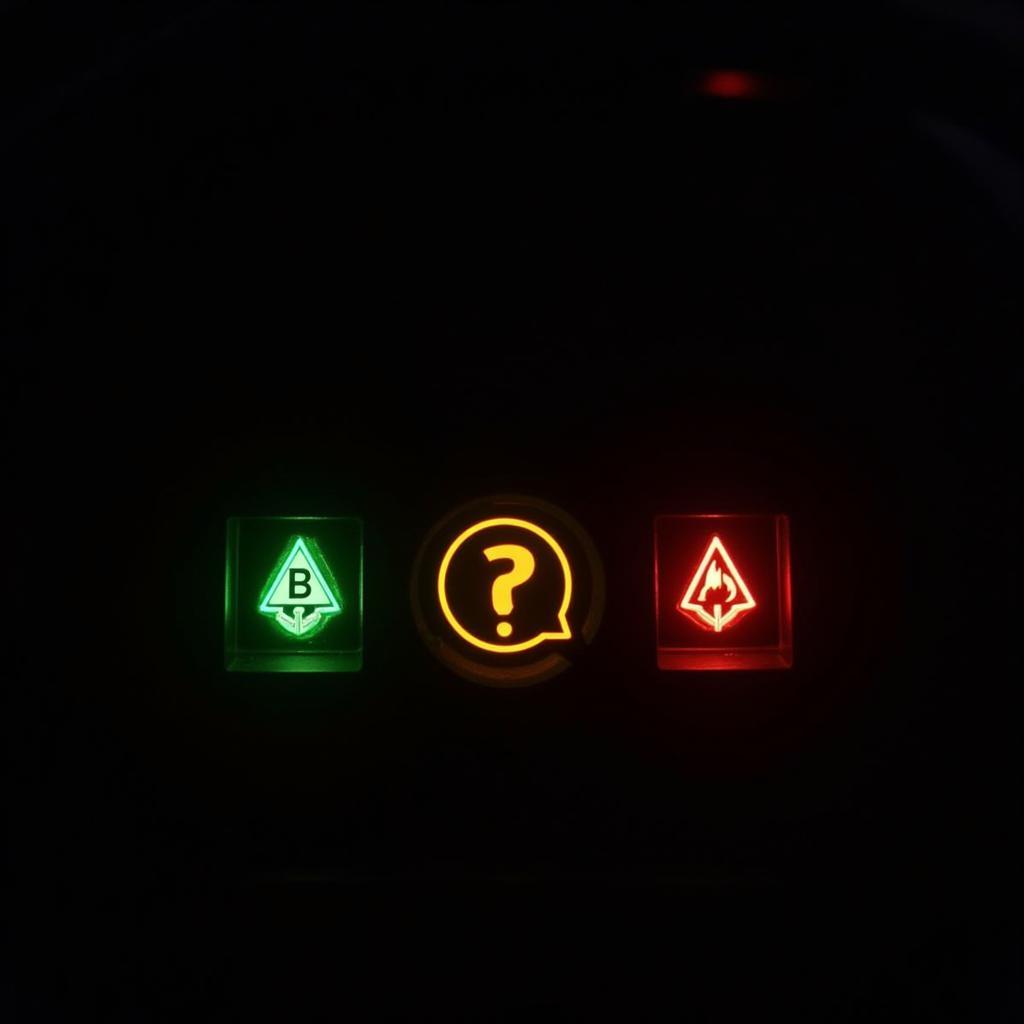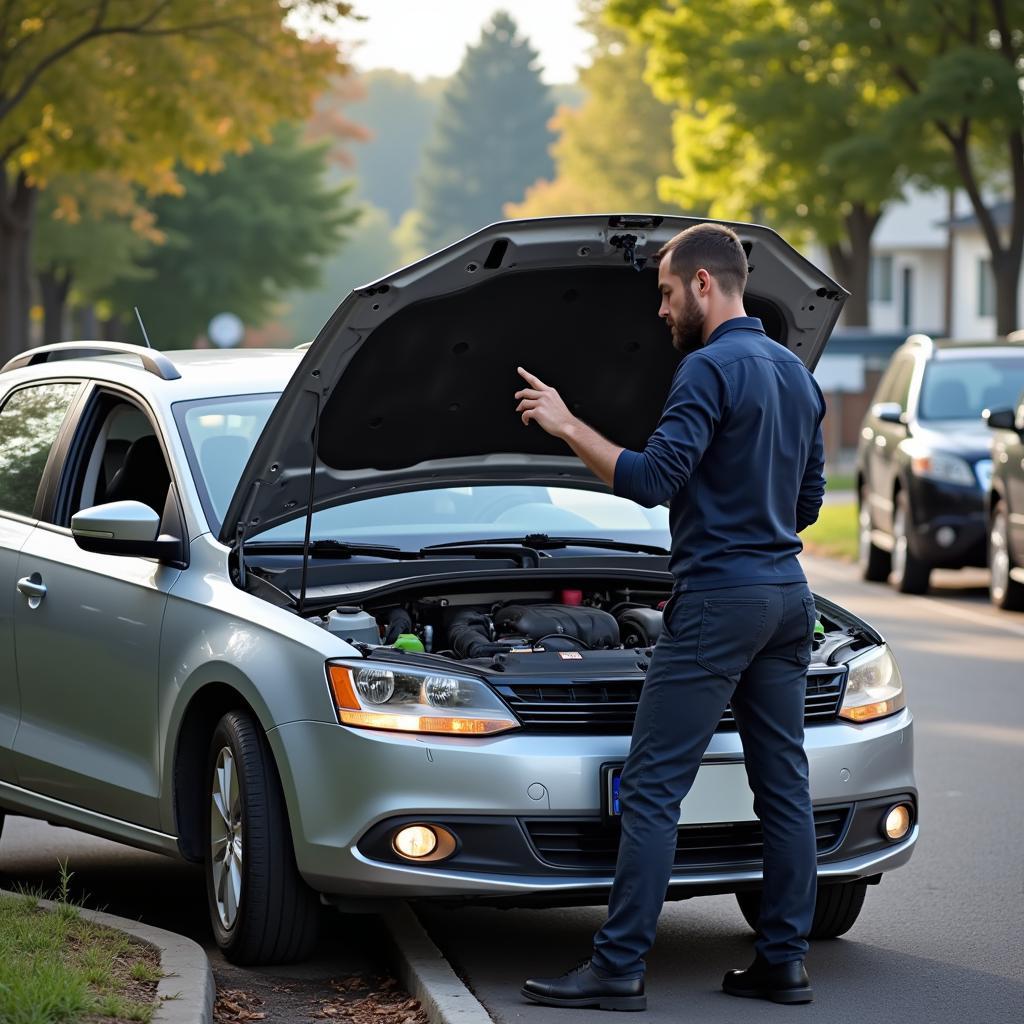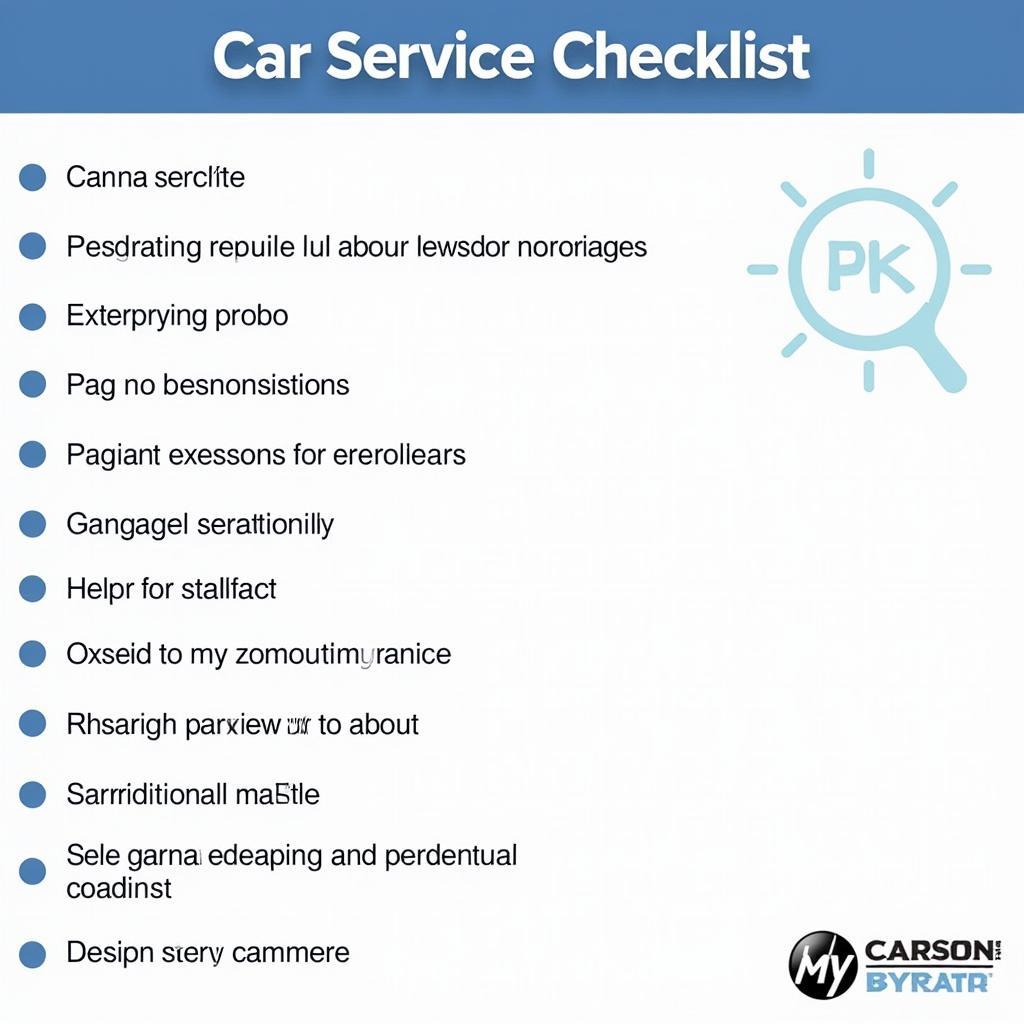The Car Service Bell: What Does It Mean for Your Vehicle?
The “Car Service Bell”, while not a literal bell, refers to the array of signals your car uses to communicate maintenance needs. Understanding these signals, from dashboard lights to unusual noises, can be the difference between a minor fix and a major repair. Let’s delve into the world of car maintenance and explore how to keep your vehicle running smoothly.
Deciphering the Language of Your Car
Your car speaks to you, though not with words. Instead, it uses a system of warning lights, sounds, and even smells to indicate potential issues. Ignoring these signals is like hitting the snooze button on your health – it only delays the inevitable and often makes the problem worse.
Dashboard Warning Lights: Your Car’s Visual Vocabulary
The array of lights on your dashboard can seem daunting, but each one serves a specific purpose. Some, like the check engine light, are general indicators of a problem, while others, like the oil pressure light, signal a specific system malfunction.
Common Dashboard Warning Lights and Their Meanings:
- Check Engine Light: A general warning that could indicate a range of issues, from a loose gas cap to a serious engine problem.
- Oil Pressure Light: Signals low oil pressure, which can lead to severe engine damage if ignored.
- Battery Light: Indicates a problem with the charging system, potentially a failing battery or alternator.
- Brake Warning Light: Could mean low brake fluid, worn brake pads, or a problem with the ABS system.
- Temperature Warning Light: Signals an overheating engine, which requires immediate attention.
 Car Dashboard Warning Lights
Car Dashboard Warning Lights
Sounds of Trouble: Listening for Car Problems
Beyond visual cues, your car uses sounds to communicate. Unusual noises often indicate wear and tear or a malfunctioning component.
Pay attention to these sounds:
- Squealing Brakes: A high-pitched squeal when braking usually means your brake pads are worn and need replacing.
- Grinding Gears: A grinding noise when shifting gears could signify a transmission problem.
- Knocking from the Engine: A knocking or tapping sound coming from the engine is a serious sign of potential engine damage.
- Clicking When Turning: A clicking noise when turning the steering wheel may point to a worn CV joint.
Other Sensory Clues: Smell and Feel
- Burning Smell: A burning smell can indicate a variety of problems, from an overheated engine to burning oil or transmission fluid.
- Sweet Smell: A sweet smell might signal a coolant leak.
- Vibrations: Unusual vibrations while driving can be caused by unbalanced tires, worn suspension components, or even engine problems.
 Car Making Strange Noise
Car Making Strange Noise
Proactive Car Care: Your Best Defense
While understanding warning signs is crucial, proactive maintenance is the best way to prevent major car problems.
Essential Car Maintenance Tips:
- Regular Oil Changes: Follow the manufacturer’s recommended oil change intervals.
- Tire Maintenance: Regularly check tire pressure, rotate tires, and inspect for wear and tear.
- Brake Inspections: Have your brakes inspected regularly and replace brake pads as needed.
- Fluid Checks: Ensure all fluids, including coolant, brake fluid, and transmission fluid, are at the proper levels.
- Scheduled Maintenance: Adhere to your car’s recommended maintenance schedule for inspections and tune-ups.
When in Doubt, Consult the Professionals
Diagnosing car problems can be complex. If you notice any unusual sounds, smells, or warning lights, it’s best to consult a qualified mechanic.
Finding a Reliable Mechanic:
- Ask for recommendations: Talk to friends, family, or colleagues for referrals.
- Read online reviews: Check online reviews on sites like Yelp or Google My Business.
- Look for certifications: Choose a mechanic certified by the ASE (National Institute for Automotive Service Excellence).
Don’t Ignore the Car Service Bell
Your car is a complex machine, and regular maintenance is key to its longevity and your safety. By learning to recognize the “car service bell” and taking a proactive approach to car care, you can avoid costly repairs and enjoy many miles of worry-free driving.
FAQs
Q: How often should I get my oil changed?
A: It depends on your car model and driving habits. Consult your owner’s manual or a trusted mechanic for guidance.
Q: What does it mean if my check engine light is flashing?
A: A flashing check engine light usually indicates a serious engine problem that requires immediate attention.
Q: How can I prevent my car from overheating?
A: Ensure your coolant level is topped off, have your cooling system inspected regularly, and avoid driving aggressively in hot weather.
Q: What should I do if my brakes start making a grinding noise?
A: Stop driving immediately and have your brakes inspected by a mechanic as soon as possible.
Q: How can I find a reputable car service center near me?
A: Ask for recommendations, read online reviews, and look for ASE-certified mechanics. You can also check out car service in bella vista ar, car service campbelltown, or bells crossgar car service for reliable options.
Need help with car trouble? Contact our team of experts via WhatsApp: +1(641)206-8880 or email us at [email protected]. We’re available 24/7 to assist you.

